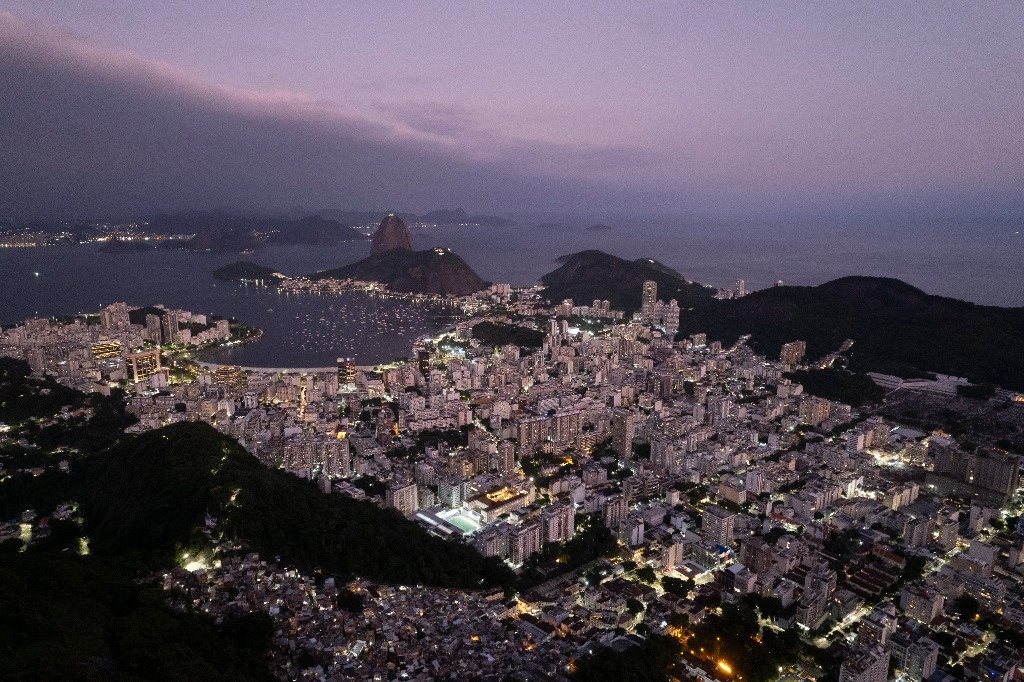La Jornada – Mexico has moved up six places in the United Nations Development Index

Mexico City. Last year, Mexico improved six places in the Human Development Index (HDI), an index developed by a United Nations agency that includes 193 countries and measures life expectancy at birth, education and income per capita, according to the report released Wednesday. .
Last year, Mexico ranked 77th, six places higher than the previous report, when it ranked 83rd, according to the United Nations Development Program report titled Break the siege.
The Human Development Index, which collects information from 1990 to the present, is the measure resulting from weighting three dimensions of human development: life expectancy, education (expectations and average education) and average income per inhabitant on a scale from zero to one. . . This measurement represents a two-year decline in 2020 and 2021 to levels of five years ago due to the impact of the Covid-19 pandemic, according to the same report.
In the report released yesterday, Mexico received a score of 0.781, placing it between Sri Lanka (78th) and Armenia (76th). These places correspond to a range of high human development, according to the classification developed by the United Nations Development Programme.
Last year's position represents a slight improvement compared to 0.779 in the country in 2018, that is, at the beginning of the current administration, which means that the effects of the pandemic have been overcome.
Now, when looking at the period 1990-2022, there is an improvement of 17.31 percent, as Mexico's HDI value rose from 0.666 to 0.781 in that period.
In a global comparison, Mexico's rating is higher than the global average, which is 0.739, and also higher than the Latin American benchmark, which scores 0.763.
Compared to other major economies in Latin America, Mexico's HDI score is higher than Brazil's, which scores 0.760. In the case of Argentina, the opposite happens, as the South American country achieved a record score of 0.849.
Separation
The average life expectancy in Mexico is 74.8 years, in Brazil it is 73.4 years, and in Argentina it is 76.1 years. Although it practically corresponds to the regional average of 73.7 years.
Regarding education, the average number of years completed in our country is 9.2 (with an expectation of 14.5); In Brazil 8.3 were taken (15.6 expected) and in Argentina 11.1 (out of 19 expected).
For Latin America, the average duration of schooling is 9 years (although the target is 14.8).
In terms of average per capita income, it reached $19,138 in Mexico in 2022. The amount exceeds $14,616 in Brazil, but is less than $22,048 in Argentina. For the region, income averaged $15,109.
classification worldwide
At the top of the Human Development Index list are Switzerland (0.967), Norway (0.966) and Iceland (0.959). This range is the range of very high human development.
At the bottom of the list are Somalia (0.380), South Sudan (0.381), and the Central African Republic (0.387).
Expectations – Views
Estimates for 2023 indicate a historical maximum for the index globally in all its components Back above pre-2019 levels
.
But what seems like good news hides an unexpected gap between rich and poor countries. What we are seeing is that the poorest and most vulnerable segments of our society are being left behind
Although the UN's 2030 Development Goals specifically aim to prevent this from happening, starting with For the most late
The person responsible for the report, Pedro Conceicao, warned.

“Bacon advocate. Certified creator. Twitteraholic. Tv junkie. Beer fanatic. Internet nerd. Passionate thinker. Reader.”




:quality(85)/cloudfront-us-east-1.images.arcpublishing.com/infobae/OF4NJDPGLBEYJAZ5XZMH3OIPJ4.jpg)



